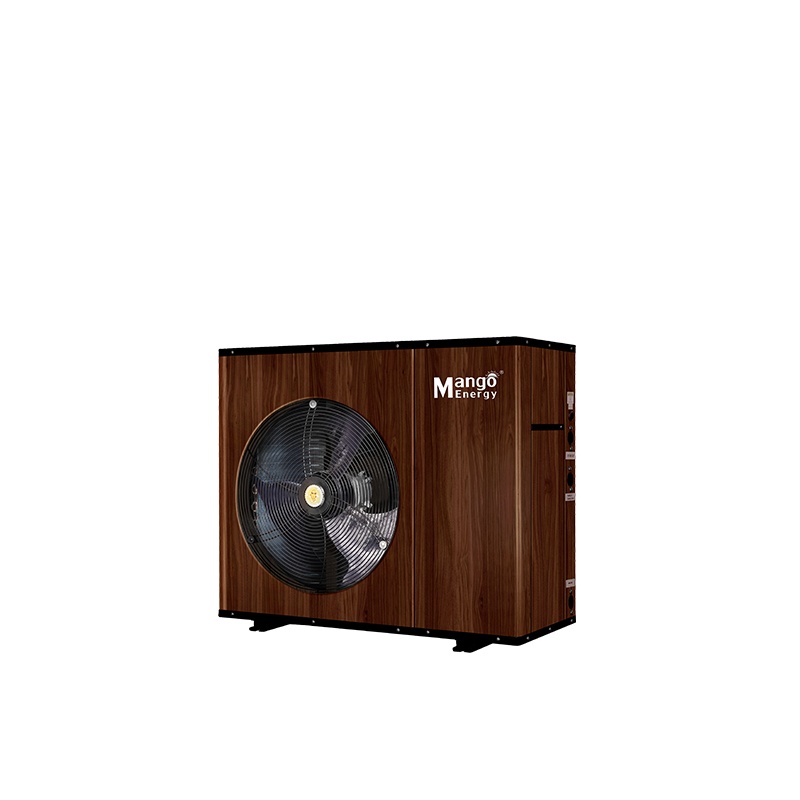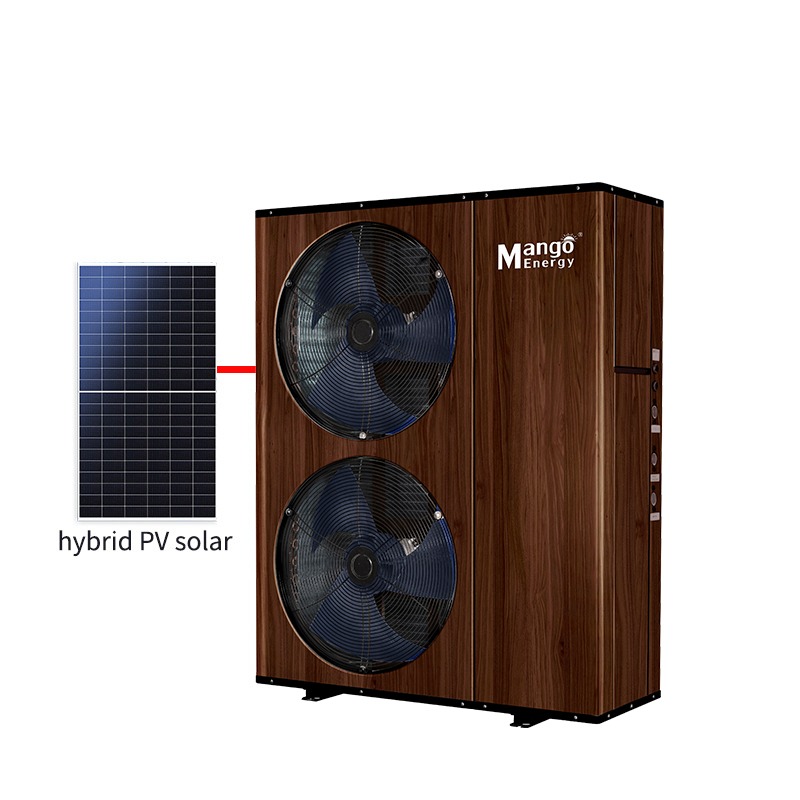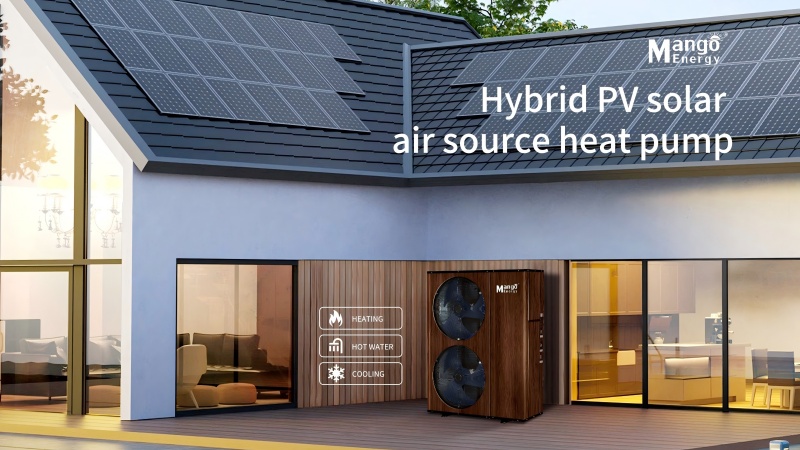
As global demand for cleaner and more sustainable heating and cooling technologies grows, hybrid solar heat pumps have emerged as a key solution in reducing residential and commercial carbon footprints. By combining solar photovoltaic (PV) energy with advanced heat pump technology, these systems offer a powerful alternative to fossil-fuel-based heating systems.
In this article, we explore how hybrid PV solar air source heat pumps work, their environmental advantages, and how brands like Mango Energy are helping customers make the transition to low-carbon living.
What Is a Hybrid Solar Heat Pump?
A hybrid solar energy heat pump integrates two main components:
Solar PV panels to generate electricity from sunlight
Air source heat pump to extract thermal energy from ambient air
These two systems work in tandem, where the solar PV heat pump system powers the heat pump with renewable energy, dramatically reducing grid electricity consumption and minimizing CO₂ emissions. Mango Energy’s hybrid PV solar air source heat pump systems are engineered for high performance in both heating and cooling modes, making them ideal for year-round energy efficiency.

How Hybrid Solar Heat Pumps Reduce Carbon Emissions
1. Displacing Fossil Fuel-Based Heating
Traditional heating systems, such as gas boilers or electric resistance heaters, rely heavily on non-renewable energy sources. In contrast, a hybrid solar heat pump uses clean, solar-generated electricity to run the compressor and fan units of the heat pump.
According to Mango Energy’s data, their systems can cut heating-related CO₂ emissions by up to 65–80%, depending on the local solar yield and system configuration.
2. Lower Grid Dependency
A solar PV heat pump system greatly reduces the need for electricity from the grid—especially in sun-rich regions. Since many power grids still rely on coal or natural gas, lowering grid demand directly cuts carbon emissions associated with centralized power generation.
Mango Energy’s systems feature smart inverters that optimize solar energy use during peak production hours, further lowering a home’s or building’s carbon footprint.
3. High Energy Efficiency (COP and SPF)
One of the most significant advantages of heat pumps is their Coefficient of Performance (COP). While a standard electric heater delivers 1kW of heat for every 1kW of electricity, a hybrid PV solar air source heat pump can deliver 3–5kW of heat per 1kW of solar electricity, thanks to heat exchange technology. This high energy conversion ratio dramatically reduces total energy input per unit of heat output, meaning fewer emissions per BTU delivered.
4. Reducing Peak Load and Supporting Grid Stability
Hybrid solar heat pumps not only reduce emissions at the user level but also contribute to energy decentralization. By producing and consuming energy on-site, they help ease the load on national grids, especially during winter or summer peaks. Mango Energy integrates intelligent load-balancing systems that allow hybrid setups to prioritize solar input, reducing reliance on fossil-fueled peak plants.
5. Lifecycle Sustainability
Leading hybrid solar heat pump manufacturers, like Mango Energy, focus not only on operational efficiency but also on the lifecycle sustainability of their units. This includes:
Use of low-GWP (Global Warming Potential) refrigerants
Recyclable materials in the external casing and inner components
Long product lifespans (typically 15–20 years)
All of these factors contribute to overall emission reduction when considering the full lifecycle impact of heating equipment.

Ideal Applications for Carbon Reduction
Hybrid solar heat pumps are particularly effective in:
Residential homes looking to cut monthly emissions and utility bills
Green buildings and passive house projects aiming for zero-carbon goals
Commercial buildings seeking ESG (Environmental, Social, and Governance) compliance
Off-grid or remote homes where grid electricity is expensive or unavailable
Why Choose Mango Energy?
As a leading hybrid solar heat pump manufacturer, Mango Energy delivers:
Fully integrated hybrid PV solar air source heat pump systems
Customizable B2B OEM/ODM solutions
CE, RoHS, and ERP compliant equipment
Real-time monitoring and intelligent energy management
Excellent performance in both cold and hot climates

Their advanced systems help customers meet their decarbonization targets without compromising on comfort or efficiency.
In a world striving to meet carbon neutrality goals, hybrid solar energy heat pumps are a practical and impactful technology. By combining solar PV with air source heat pump technology, systems like those from Mango Energy offer a sustainable, cost-effective, and future-ready way to heat and cool buildings. If you're looking to reduce your home’s or project’s carbon footprint, a solar PV heat pump system could be one of the smartest investments you’ll make this decade.


